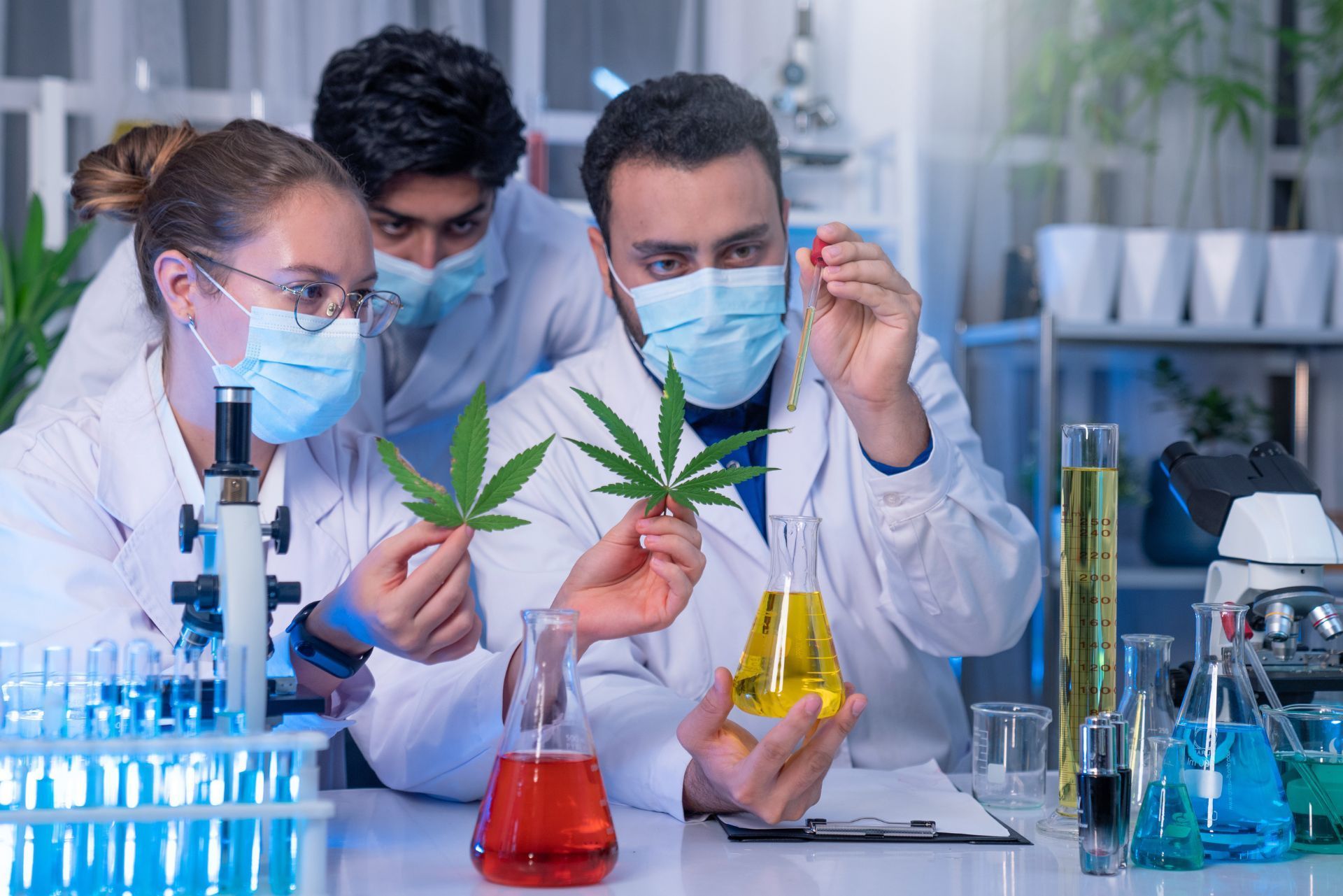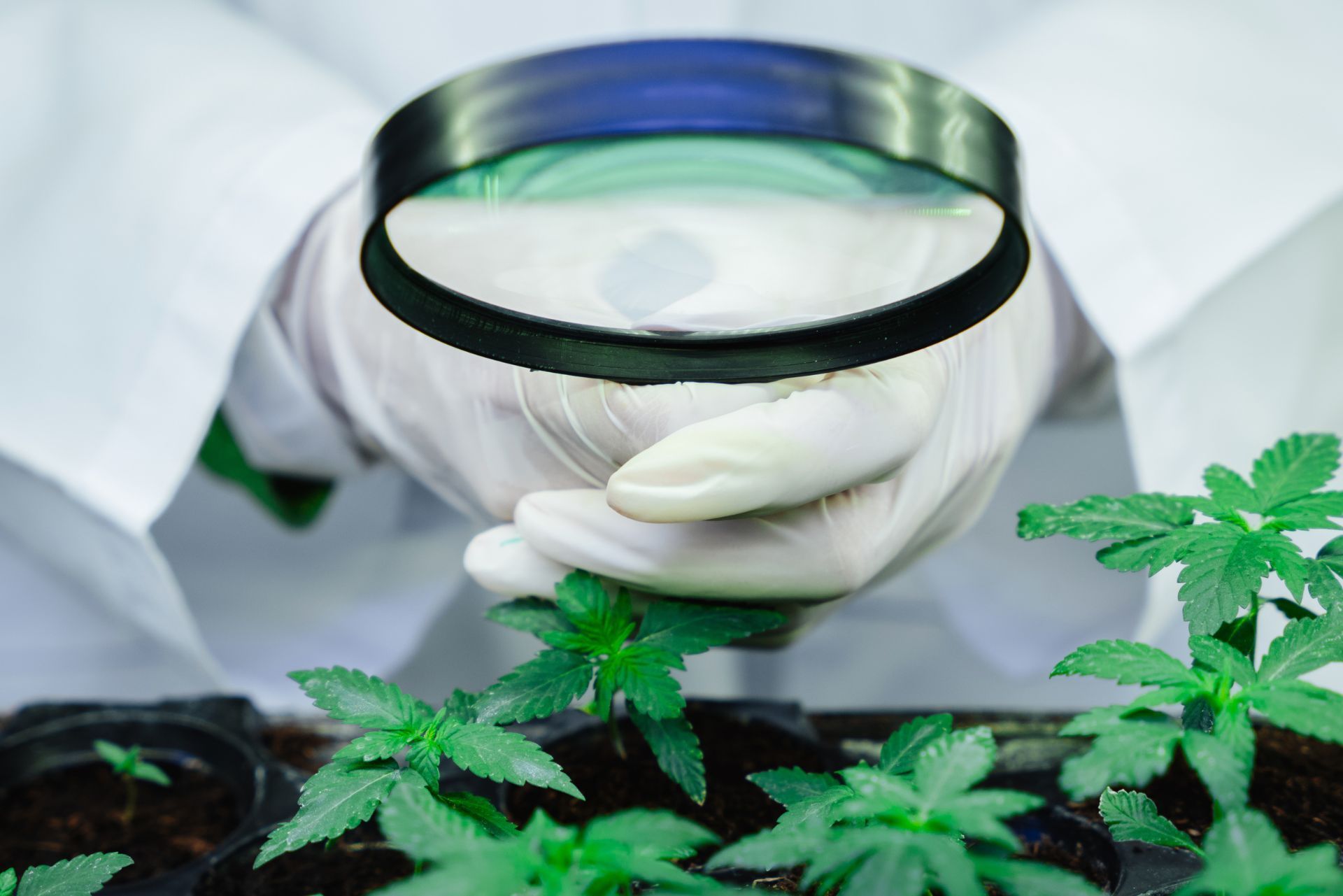Cannabis Testing and Laboratory Insurance
See How We're Different
or call us: (215) 653-8411
The cannabis industry has experienced rapid growth and transformation over the past decade, leading to an increased demand for reliable testing and laboratory services. As more states legalize cannabis for medicinal and recreational use, the need for stringent testing protocols has become paramount. This has also led to a rise in the importance of insurance coverage tailored specifically for cannabis testing laboratories. Understanding the nuances of cannabis testing and laboratory insurance is essential for operators in this field. This article will delve into various aspects of cannabis testing, the importance of laboratory insurance, and the key considerations to keep in mind.
Understanding Cannabis Testing
Cannabis testing is a critical component of the industry, ensuring that products are safe for consumers and compliant with regulatory standards. Testing laboratories analyze cannabis products for potency, contaminants, and other important factors. This section will explore the types of tests commonly performed and the significance of accurate results.
Types of Tests Conducted
There are several key tests that cannabis laboratories typically perform. These include potency testing, which measures the concentration of cannabinoids like THC and CBD. This information is crucial for consumers seeking specific effects from their cannabis products. For instance, a higher THC concentration may be sought for recreational use, while CBD-rich strains are often preferred for therapeutic purposes. Understanding these concentrations helps consumers make informed choices tailored to their individual needs.
Contaminant testing is another vital area, where laboratories check for harmful substances such as pesticides, heavy metals, and microbial contaminants. Ensuring that cannabis products are free from these contaminants is essential for consumer safety and regulatory compliance. In addition to these standard tests, some laboratories also conduct terpene profiling, which identifies the aromatic compounds that contribute to the flavor and effects of cannabis. This additional layer of testing can enhance the consumer experience by providing insights into the unique characteristics of different strains.
The Importance of Accurate Testing
Accurate testing is not just a regulatory requirement; it also builds trust with consumers. In an industry that is still gaining acceptance, consumers are increasingly looking for transparency and reliability. When testing results are consistent and trustworthy, it fosters confidence in the products being offered. Furthermore, the rise of online cannabis sales has made it even more crucial for consumers to rely on accurate lab results, as they often cannot physically inspect products before purchasing. This reliance on testing data underscores the need for laboratories to maintain high standards and rigorous protocols.
Moreover, accurate testing can help businesses avoid costly recalls and potential legal issues. A single misstep can lead to severe repercussions, including fines and damage to a brand's reputation. Thus, investing in quality testing services is not just a regulatory obligation but a business imperative. Companies that prioritize robust testing protocols not only protect their customers but also position themselves as leaders in the market, setting a benchmark for quality and safety that can differentiate them from competitors. As the cannabis industry continues to evolve, the role of testing will only become more significant, driving innovation and ensuring that consumers can enjoy cannabis products with peace of mind.
Laboratory Insurance: An Overview
Laboratory insurance is designed to protect testing facilities from various risks associated with their operations. Given the unique challenges faced by cannabis testing laboratories, having the right insurance coverage is essential. This section will outline the different types of insurance that are relevant to cannabis testing labs.
General Liability Insurance
General liability insurance is a fundamental type of coverage for any business, including cannabis testing laboratories. This insurance protects against claims of bodily injury, property damage, and personal injury that may arise during the course of business operations. For laboratories, this could include accidents that occur on-site or issues arising from the testing process.
In the cannabis industry, where regulations and consumer expectations are high, having general liability insurance can provide peace of mind. It ensures that laboratories can operate without the constant fear of financial ruin from unforeseen incidents. Additionally, general liability insurance can also cover legal defense costs, which can be particularly beneficial in the event of a lawsuit. This coverage is not just a safeguard; it also enhances the credibility of a laboratory, demonstrating to clients and partners that the facility is responsible and prepared for potential risks.
Professional Liability Insurance
Professional liability insurance, also known as errors and omissions insurance, is particularly important for testing laboratories. This coverage protects against claims of negligence or failure to perform professional duties. For example, if a laboratory provides inaccurate testing results that lead to consumer harm, professional liability insurance can help cover legal fees and settlements.
In an industry where precision and accuracy are paramount, having this type of insurance can safeguard against potential lawsuits and the financial fallout that may ensue. Moreover, professional liability insurance can also cover claims related to misrepresentation of services or products, which is crucial in a sector where trust and transparency are vital. Laboratories that invest in this insurance not only protect themselves from financial losses but also reinforce their commitment to quality and safety, fostering greater trust among clients and stakeholders.

Key Considerations for Cannabis Testing Laboratories
When it comes to cannabis testing and laboratory insurance, there are several key considerations that operators should keep in mind. These factors can significantly influence the success and sustainability of a laboratory.
Regulatory Compliance
Regulatory compliance is a critical aspect of operating a cannabis testing laboratory. Each state has its own set of regulations governing cannabis testing, and these can vary widely. Laboratories must stay informed about local laws and ensure that they are compliant with all testing requirements.
Failure to comply with regulations can lead to severe penalties, including the loss of licenses and legal action. Therefore, it is essential for laboratories to have a thorough understanding of the legal landscape and to implement robust compliance protocols. Additionally, laboratories should consider investing in compliance management software that can help track changes in regulations and ensure that all practices are up to date. Regular training sessions for staff on compliance issues can also mitigate risks and promote a culture of accountability within the organization.
Choosing the Right Insurance Provider
Selecting the right insurance provider is crucial for cannabis testing laboratories. Not all insurance companies understand the unique risks associated with the cannabis industry. It is advisable to work with insurers who specialize in cannabis-related coverage and have experience in the testing laboratory sector.
When evaluating potential insurance providers, laboratories should consider factors such as coverage options, customer service, and claims handling. A provider that understands the nuances of the cannabis industry can offer tailored coverage that meets the specific needs of a testing laboratory. Furthermore, laboratories should also assess the financial stability of the insurance provider, as a strong financial background can ensure that claims are paid promptly in the event of an incident. Engaging in discussions with other laboratory operators or industry associations can provide valuable insights and recommendations for reputable insurance providers who have a proven track record in the cannabis sector.
The Financial Implications of Cannabis Testing and Insurance
Operating a cannabis testing laboratory involves significant financial considerations. From equipment costs to staffing and insurance premiums, understanding the financial landscape is crucial for sustainability.
Cost of Testing Services
The cost of testing services can vary widely depending on the types of tests performed and the laboratory's location. Laboratories must balance the need to provide affordable testing with the necessity of maintaining high standards of quality and accuracy.
Investing in advanced equipment and skilled personnel can lead to higher operational costs, but it can also result in more accurate testing and a stronger reputation in the market. Therefore, laboratories must carefully assess their pricing structures and ensure that they are competitive while still covering their expenses. Additionally, the demand for specific tests, such as potency analysis or contaminant screening, can fluctuate based on market trends and regulatory changes, further complicating pricing strategies. Laboratories may also consider offering bundled services or loyalty programs to attract and retain clients, thereby creating a more stable revenue stream.
Insurance Premiums and Budgeting
Insurance premiums for cannabis testing laboratories can be higher than those for traditional businesses due to the unique risks involved. Laboratories should budget for these costs and consider them as part of their overall operational expenses.
It is also wise for laboratories to regularly review their insurance policies to ensure they have adequate coverage and are not overpaying for unnecessary options. As the industry evolves, so too should the insurance coverage to reflect changes in operations and regulatory requirements. Furthermore, laboratories may benefit from consulting with insurance brokers who specialize in the cannabis sector, as they can provide insights into the best practices for risk management and help identify potential savings. This proactive approach to insurance can not only mitigate financial risks but also enhance the laboratory's credibility in a competitive market, as clients often seek assurance that their products are being tested in a compliant and secure environment.

Emerging Trends in Cannabis Testing and Insurance
The cannabis industry is continually evolving, and with it, the landscape of testing and insurance. Staying informed about emerging trends can help laboratories remain competitive and compliant.
Technological Advancements
Technological advancements are transforming cannabis testing, with new methods and equipment enhancing accuracy and efficiency. Innovations such as high-performance liquid chromatography (HPLC) and gas chromatography (GC) are becoming standard in laboratories, allowing for more precise analysis of cannabis products.
As technology evolves, laboratories must be prepared to invest in new equipment and training for their staff. This not only improves testing quality but also positions the laboratory as a leader in the industry. Furthermore, the integration of artificial intelligence and machine learning into testing processes is beginning to show promise. These technologies can analyze vast amounts of data quickly, identifying patterns and anomalies that human testers might overlook. This capability not only streamlines operations but also enhances the reliability of test results, which is crucial for consumer safety and regulatory compliance.
Changes in Regulation
Regulatory changes are a constant in the cannabis industry, and laboratories must remain vigilant to adapt to new laws and standards. As more states legalize cannabis, the regulatory framework is likely to become more complex, requiring laboratories to stay informed and agile.
Engaging with industry associations and participating in training programs can help laboratories stay ahead of regulatory changes and ensure compliance. This proactive approach can prevent costly mistakes and enhance the laboratory's reputation. Additionally, the rise of international markets is prompting laboratories to understand and comply with a variety of international regulations, which can differ significantly from domestic standards. This global perspective not only broadens the laboratory's operational scope but also opens up new avenues for collaboration and innovation in testing methodologies. As the industry matures, the ability to navigate these diverse regulatory landscapes will be a key differentiator for successful laboratories.
Conclusion
In conclusion, cannabis testing and laboratory insurance are integral components of the cannabis industry. As the market continues to grow, understanding the intricacies of testing protocols and the importance of tailored insurance coverage is essential for laboratory operators. By investing in accurate testing, robust insurance, and staying informed about industry trends, laboratories can not only ensure compliance but also build trust with consumers and secure their place in this dynamic market.
Whether you are an established laboratory or just entering the cannabis testing space, being well-informed and prepared can make all the difference in navigating the complexities of this evolving industry. The right combination of testing excellence and comprehensive insurance coverage will pave the way for success in the cannabis testing landscape.
Contact Us

